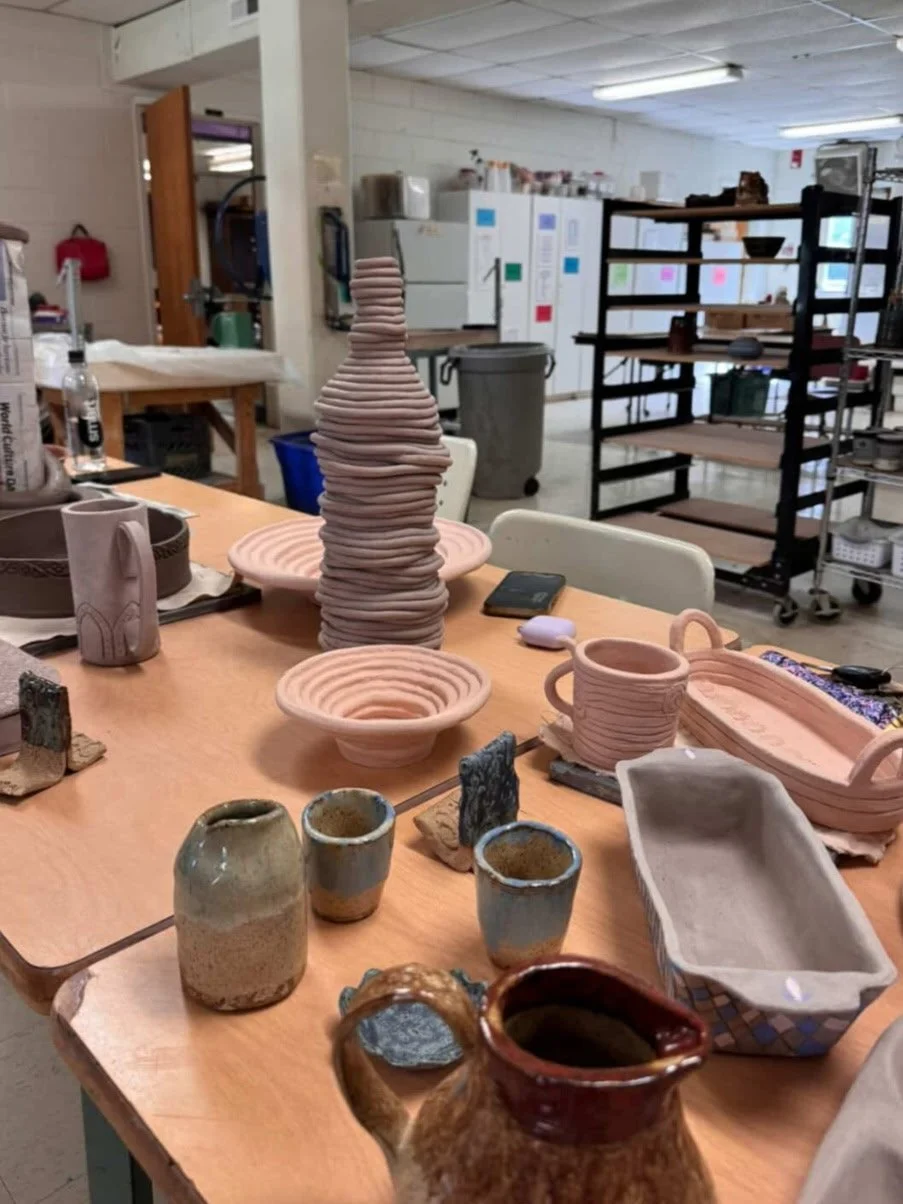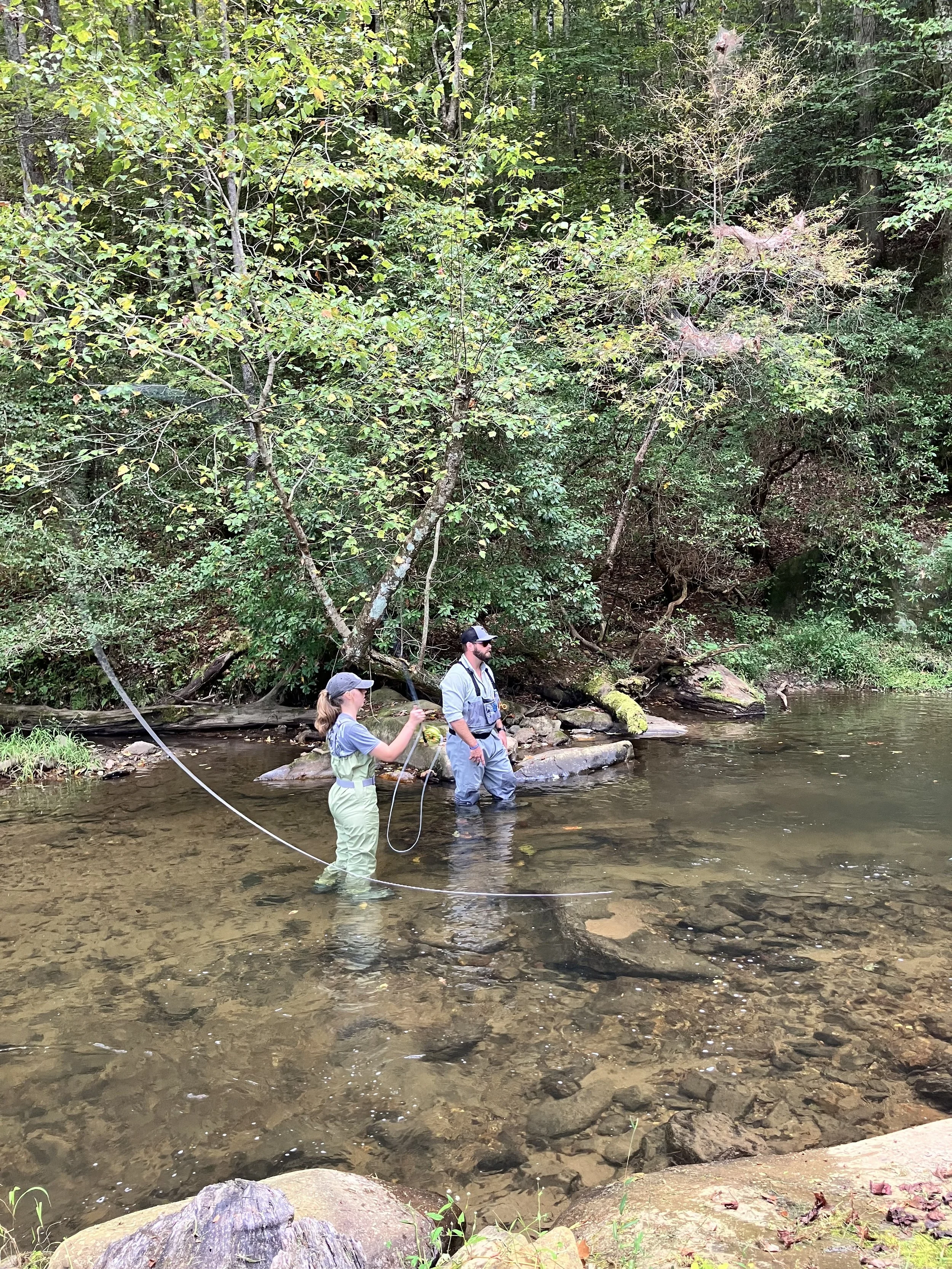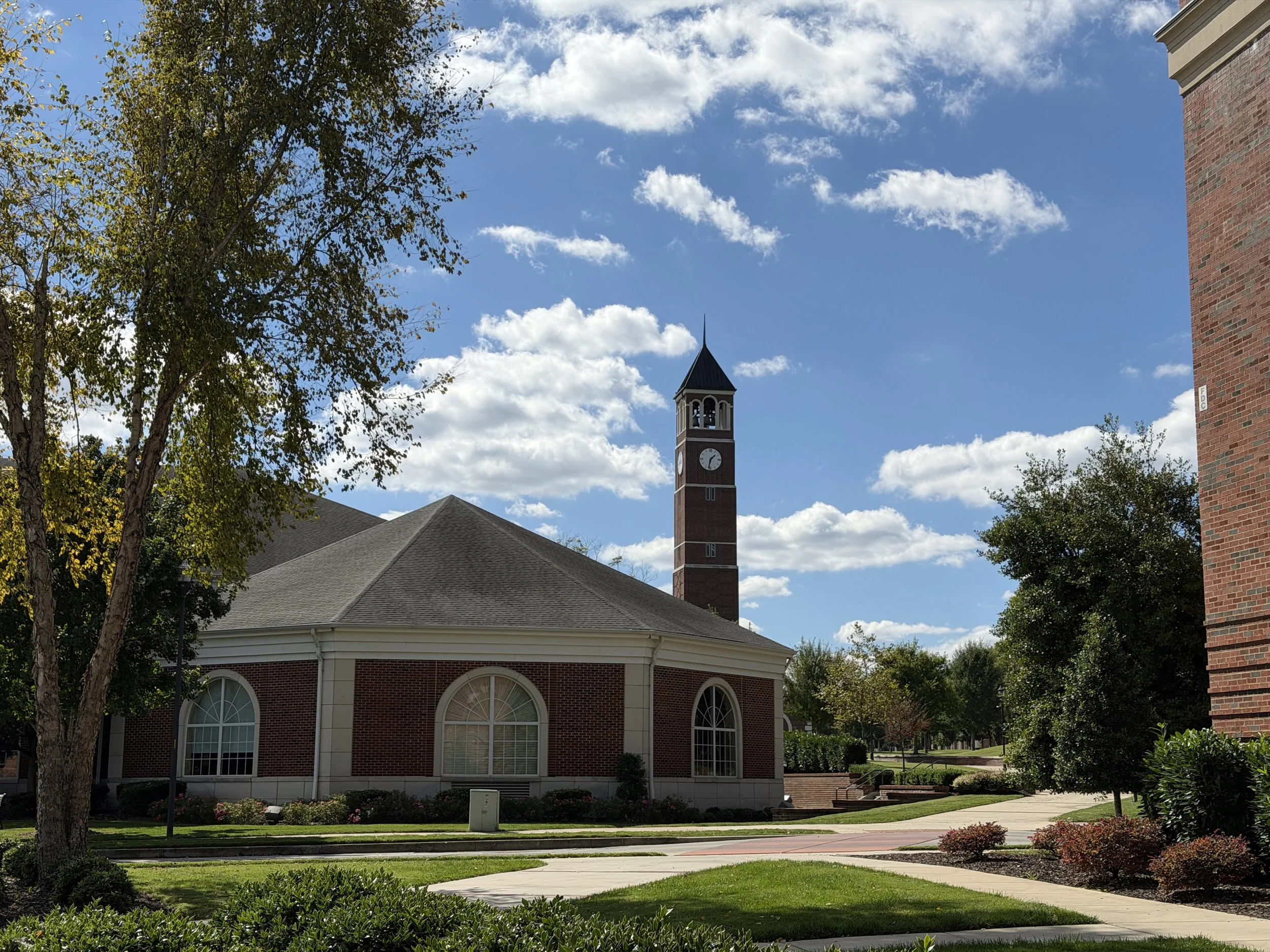Fun Electives at Lee: Learning, Creating, and Casting Outside the Box
College classes do not always mean long lectures and heavy textbooks. At Lee University, some electives invite students to trade PowerPoints for pottery wheels, spreadsheets for fly rods, and essays for bowling balls. These creative, hands-on courses remind students that learning can also be about joy, movement, and personal discovery. Whether you are looking to relax, try something new, or just earn credits doing something you love, Lee offers plenty of electives that make the semester a little more fun.
Below are three standout classes: Ceramics (ARTS-240), Fly Fishing (RECR-240), and Beginning Bowling (PHED-101). Each is led by an instructor who brings energy, experience, and a sense of adventure to the classroom.
Ceramics (ARTS-240) — Victoria Phillips
If you think you are not an art person, instructor Victoria Phillips wants to change your mind. Her Ceramics I class welcomes every kind of student, especially those who may have never touched clay before.
“Ceramics offers students who feel like they are not good at drawing or painting an alternative to create,” she explains. “You do not need any prior knowledge of art to be successful.”
The semester begins with something simple: a small pinch pot made by hand from a ball of clay. From there, students build up to coil and slab projects that require more skill and creativity. They learn how to score and slip, roll out slabs, and experiment with different textures and designs. As confidence grows, the projects become more ambitious.
Photo courtesy of Ceramics I.
“By mid-semester, students are creating platters, mugs, and baking dishes they can actually use or gift,” Phillips says.
One of the highlights of the class comes near the end, when students finally get to work on the pottery wheel. It is the most challenging part of the course, but also the most rewarding.
“When they finally center the clay, it feels like Christmas,” she says with a smile. “That moment when everything clicks is so exciting to watch.”
Phillips also encourages students to think deeply about the creative process, not just the final product. Through self-assessments, students reflect on their craftsmanship, creativity, and personal effort.
“They are encouraged to create more than what is expected and to make things their own,” she explains.
For Phillips, ceramics is about more than art. It is about giving students a way to unwind and express themselves.
“It is a fun class and a great way to relieve stress,” she says. “You are creating something with your hands, and the process itself becomes a kind of therapy.”
Her advice to anyone thinking about taking the course is simple: “Take it. You will not regret it.”
Fly Fishing (RECR-240) — Dr. Brian DeLoach
Few college classes let you trade your desk for a mountain stream, but Dr. Brian DeLoach’s Fly Fishing course does exactly that. What started in 2013 as a personal passion has grown into one of Lee’s most beloved recreation electives.
“My father and I started fly fishing in 2004, and it became a way for us to bond,” DeLoach says. “When I came to Lee, we wanted to share that experience with students and show them the beauty of Tennessee’s outdoors.”
The class is far from just a leisure activity. Students learn an impressive range of skills, from casting and knot-tying to studying aquatic insects under microscopes.
Photo courtesy of Brian DeLoach.
“We partner with Dr. Freak from the science department to teach entomology,” DeLoach explains. “Students actually look at real stream insects and learn how they connect to fly selection and water health.”
The course combines science, art, and patience, with plenty of hands-on practice.
A typical day might include casting practice on the campus lawn, tying flies with tiny tools and feathers, or fishing trips to the Cherokee National Forest and Bendabout Farms.
“We go to some of the most beautiful tailwaters in the state,” he says. “Students can fish in rivers that draw anglers from all over the world.”
Beginners are welcome, and DeLoach even prefers that.
“We supply all the gear,” he explains. “Students get a free rod, reel, line, and flies, thanks to our sponsors.”
Beyond teaching fishing techniques, DeLoach emphasizes character and conservation.
“When you create a fly fisher, you automatically create a conservationist,” he says. “When students fall in love with these places, they want to protect them.”
He believes that electives like this are essential to a complete college education.
“A well-rounded student should engage the mind and the body,” he says. “Structured recreation teaches balance, community, and respect for creation.”
After more than a decade of teaching, what keeps him hooked is simple.
“I get to be there for everyone’s first fish,” DeLoach says. “That moment is always special.”
Beginning Bowling (PHED-101) — Eric Eledge
For students looking for a class that feels more like hanging out with friends than sitting in a lecture hall, Eric Eledge’s Beginning Bowling is the perfect fit. Eledge, who serves as Lee’s Assistant Director of Campus Recreation, has taught everything from backpacking to outdoor recreation, but bowling holds a special place in his lineup.
“It is just a fun hour,” he says. “You learn something, but you also get to relax and have fun doing it.”
The class starts with a few on-campus sessions to cover basic terms, scoring, and techniques. Then students head to Leisure Time Bowling in downtown Cleveland, where the rest of the semester unfolds at the lanes. Classes meet twice a week, and students typically play two games per session.
Photo courtesy of Leisure Time Bowling.
“We try to keep things interesting,” Eledge says. “We have tournaments, special formats, and different challenges throughout the semester.”
Even though it is a recreational class, Eledge still teaches students to improve their form and adaptability.
“Everyone bowls a little differently,” he explains. “We teach practical adjustments so students can perform their best.”
He keeps the atmosphere light, offering small rewards like gift cards for tournament winners, but the real takeaway is self-improvement and camaraderie.
Bowling, he says, is a social sport that builds confidence and community.
“People associate bowling with good times with friends,” he says. “It is one of those sports where you can have fun, listen to music, and compete at your own pace.”
For many students, it becomes a welcome break in their week, a place to unwind after tougher classes.
Eledge’s favorite part of teaching is sharing that atmosphere.
“We are at the alley for most of the class, and I get to bowl too,” he says. “It is relaxing, it is active, and it brings people together. Hopefully, students leave a little better than they started, and maybe with a new hobby they will enjoy for years.”
Learning Beyond the Classroom
From throwing clay to casting lines to striking pins, these courses remind students that college is about more than lectures and grades. It is about learning skills that make life richer and more enjoyable. Whether you leave with a handmade mug, a new appreciation for nature, or a stronger bowling score, Lee’s fun electives prove that education can be creative, memorable, and full of life.






